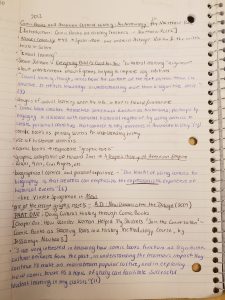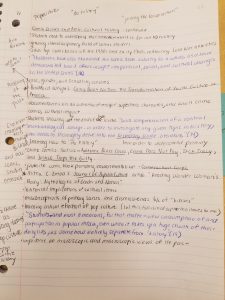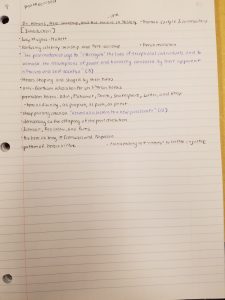Superheroes Research Plan
- Introduction: The relevancy of folklore / pop culture studies to leadership studies.
- Can understanding a group’s (or individual’s) major folklore / pop culture help us gain valuable insight into political, social, and cultural norms and how they do or do not change over time?
- Particularly in regards to Implicit Leadership Theories and Social Identity Theory of Leadership.
- Can understanding a group’s (or individual’s) major folklore / pop culture help us gain valuable insight into political, social, and cultural norms and how they do or do not change over time?
- Part 1: Identifying major folklore / pop culture phenomenons in the United States.
- The Superhero phenomenon.
- Background
- Early American Tall Tales
- Western Tropes
- Comic Book History
- Superheroes in Film
- Superheroes in Culture
- Background
- The Superhero phenomenon.
- Part 2: The Superhero franchise and its influence on, perpetuation of, or response to American Implicit Leadership Theories.
- Social science research on American ILTs
- ILTs and (American) social identity.
- Four problematic areas of ILTs to be considered in American Superhero films:
- American Exceptionalism
- Militarism
- Social Dominance Orientation Theory
- Gender Roles
- Feminist Theory
- Queer Theory
- Toxic Masculinity
- Racism
- Anglo-Saxon Centricity
- Stereotypes
- Romanticization of Leaders
- Individual vs. Shared Leadership
- Hero-Worship
- American Exceptionalism
- Social science research on American ILTs
- Part 3: Analyzing Superhero films from the beginning until now.
- Overview of Superhero films, including box office ratings.
- Analysis of the top box-office films against the four problematic areas of ILTs, from earliest released to most recent.
- Overview of Superhero films, including box office ratings.
- Conclusion: What does all this mean for the superhero film industry?
Apart from actually sitting and watching superhero movies to become extremely comfortable and familiar with the industry and medium, I also have a number of sub-focuses that will require more background knowledge (i.e., I have to do at least minor research on the four overarching problematic areas of ILTs, as well as their sub-components). I want to sit down with Dr. Hoyt to gather recommendations for the best sources to use for leadership theory on gender roles; Dr. Allison for the best on hero-worship; and possibly other professors (not just in the leadership department) who could point in the right direction for the best overview sources of the various theories / concepts I will exploring in superhero films. That could include talking with a film studies professor to find overview sources on film theories (although I spent two years of high school studying film, which included an IB Extended Essay on a film topic).



